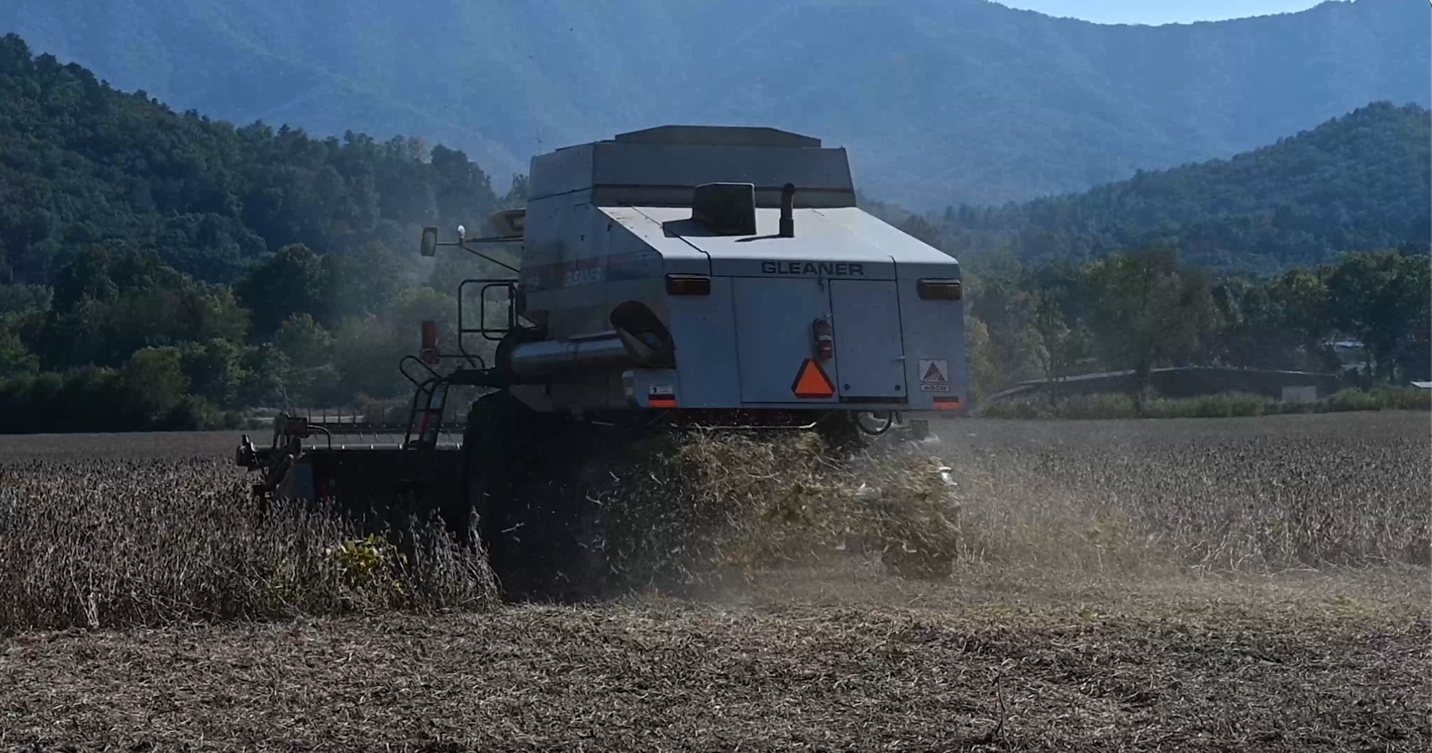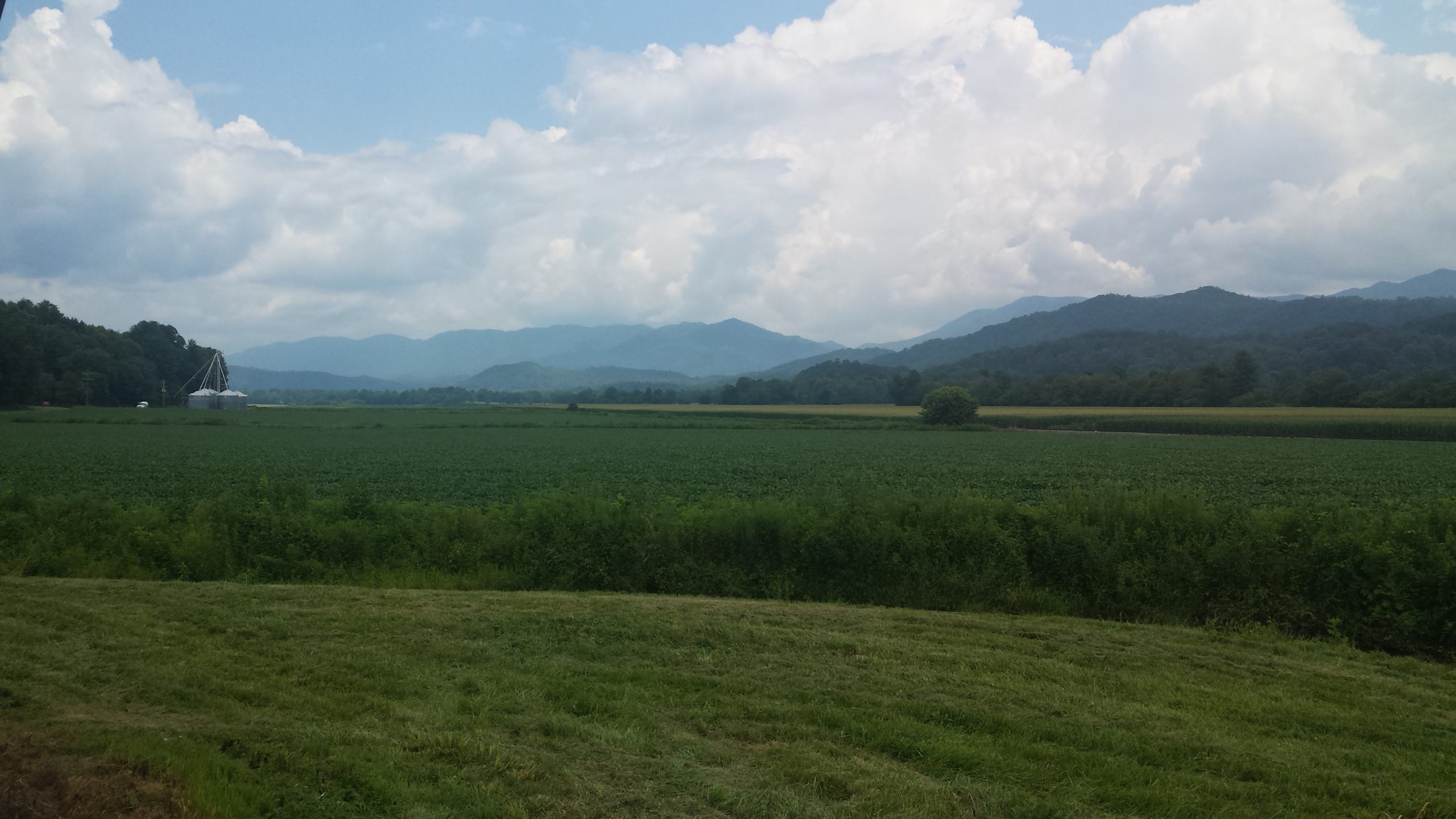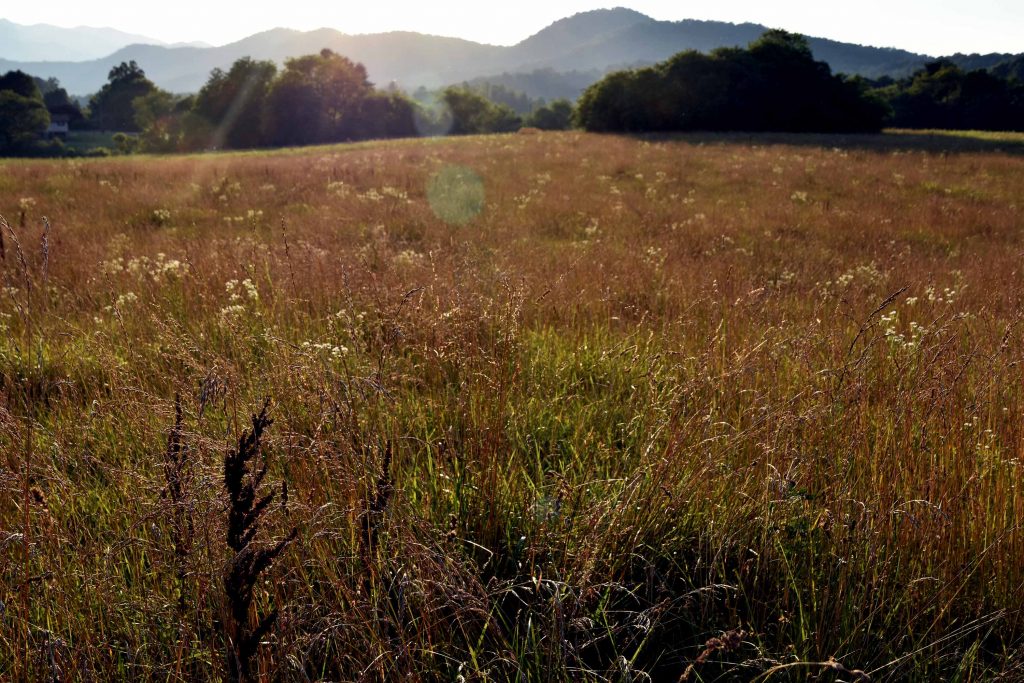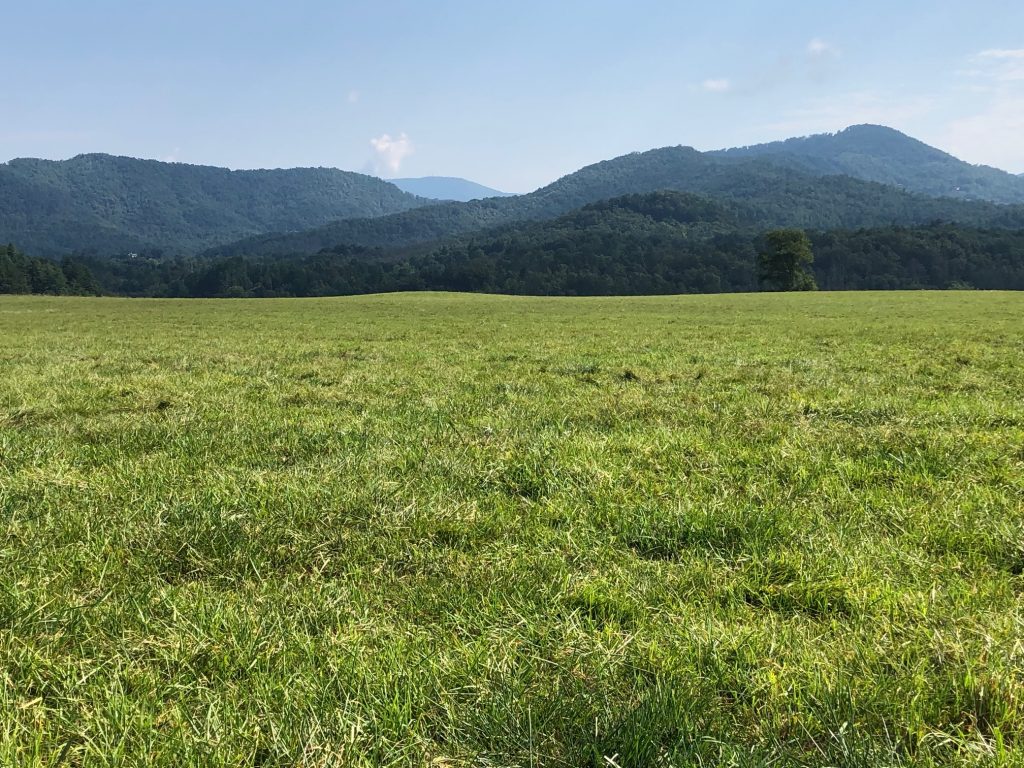When Afton Roberts was ten years old, her father, Jeff Darnell, caught her writing a check to Mainspring Conservation Trust (then the Land Trust for the Little Tennessee). “I just love land trusts, Daddy,” was what she told him.
Twenty years later, Afton, along with her brother, Nate, is leading the conservation effort to protect her family’s 68-acre working farm.
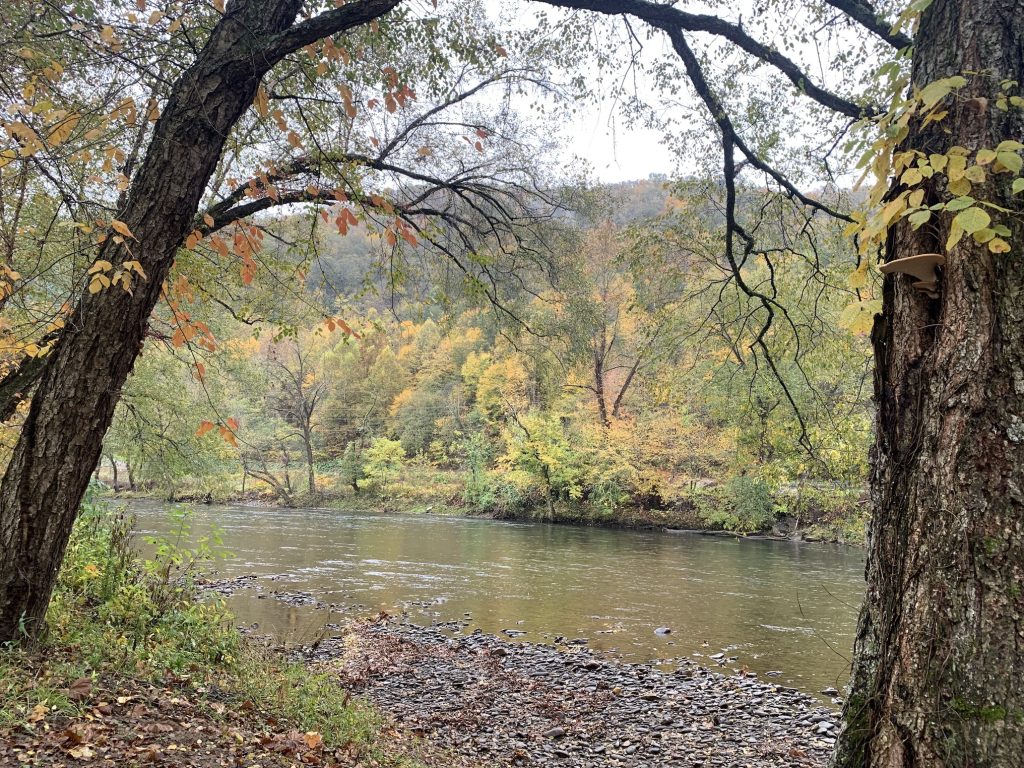
The Darnells began leasing the Swain County property along the Tuckasegee River bottomlands in 1982. At the time, the farm had grown wild, and many locals told Jeff he would never grow a good crop on the rough land. But an Israelian classmate of his at the University of Tennessee had introduced Jeff to drip irrigation, a technique designed to slowly place water directly into the root zone through a network of tubes, minimizing evaporation and saving water.
Today, the property Darnell Farms uses to grow a variety of foods is one of the most productive fields in western North Carolina. Jeff’s children, Nate Darnell and Afton Roberts, have expanded the business to include agritourism, bringing visitors to the farm for pick-your-own events, music entertainment, and food truck offerings.
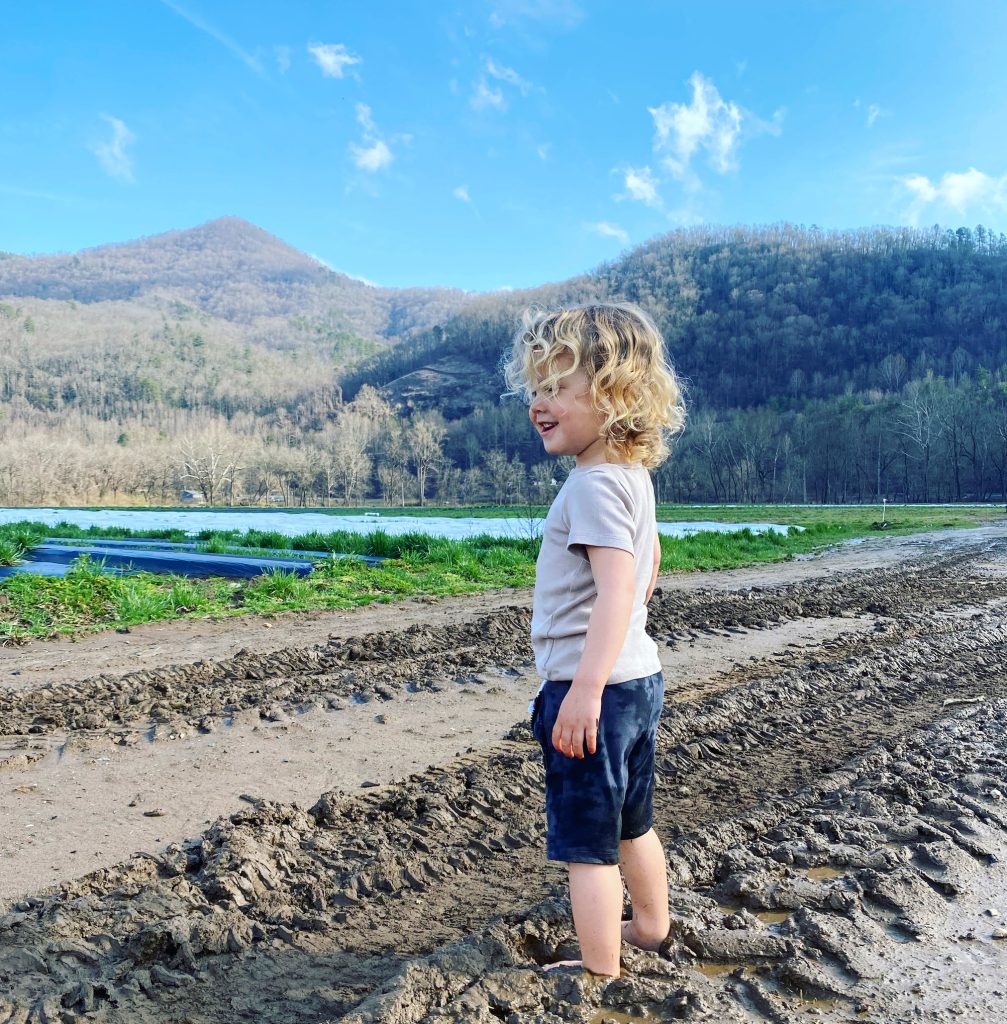
“Our family is passionate about Appalachian agriculture and are continually implementing forward-thinking steps to highlight the importance of farming in this region,” says Roberts. “You cannot save farming without farmland. My brother, Nate, and I want our children, our future grandchildren, and every other child to have a place they can come to and still see the same preservation, even one hundred years from now.”
And the conservation couldn’t happen at a better time. Compared to agricultural statistics from 1930, Swain County had almost 78,000 acres of land in farms; by 2017, that number had dropped to 10,131 acres. “Across the nation, farmland is disappearing at a rapid pace, increasing dependency on global supply chains and threatening local food security,” says Mainspring Executive Director Jordan Smith. “We are thrilled the Darnells understand this threat and wanted to act, protecting this vital agricultural landscape.”
The farm also sits adjacent to Kituwah Mound, considered by all three of the federally recognized Cherokee tribes as the place of origin for the Cherokee people. In 1996, the Cherokee purchased the 307 acres next to Darnell Farm and was acquired into trust in 2021 by the Sneed administration. Smith says the Darnell Farm was also once part of the Cherokee Mother Town, which makes it even more special to conserve. “Cherokee farmers once again farm the land around Kituwah Mound,” he explains. “Conserving the Darnell Farm ensures another significant portion of Kituwah will continue to provide food for generations to come, just as it has for thousands of years.”
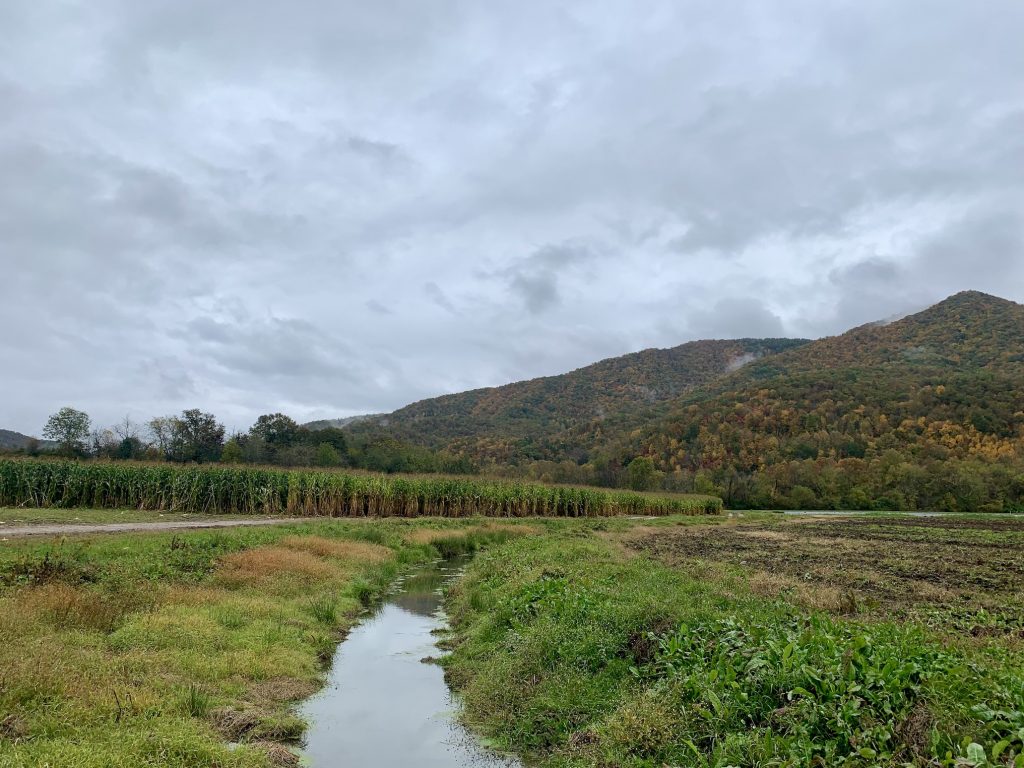
The conservation effort is partially funded through a grant from the North Carolina Agricultural Development & Farmland Preservation Trust Fund and a major donation from Brad Stanback and Shelli Lodge-Stanback. Sara Posey-Davis, land conservation manager for Mainspring, says the land trust is still raising funds for a portion of the project. “We currently have funds to pay for 75% of the easement value,” she says. “We’ve got to raise another $30,000 for transaction costs but hope to raise enough money to be able to pay the Darnells for the full value of the easement.” Posey-Davis adds that this project is worth caring about. “The prime farmland, proximity to water, and the deep history of cultural heritage make this such a special project,” she says. “Conserving it reaches every aspect of Mainspring’s mission to save ‘the best of the rest.’”
To support the conservation efforts of this farm, visit www.mainspringconserves.org to donate.
